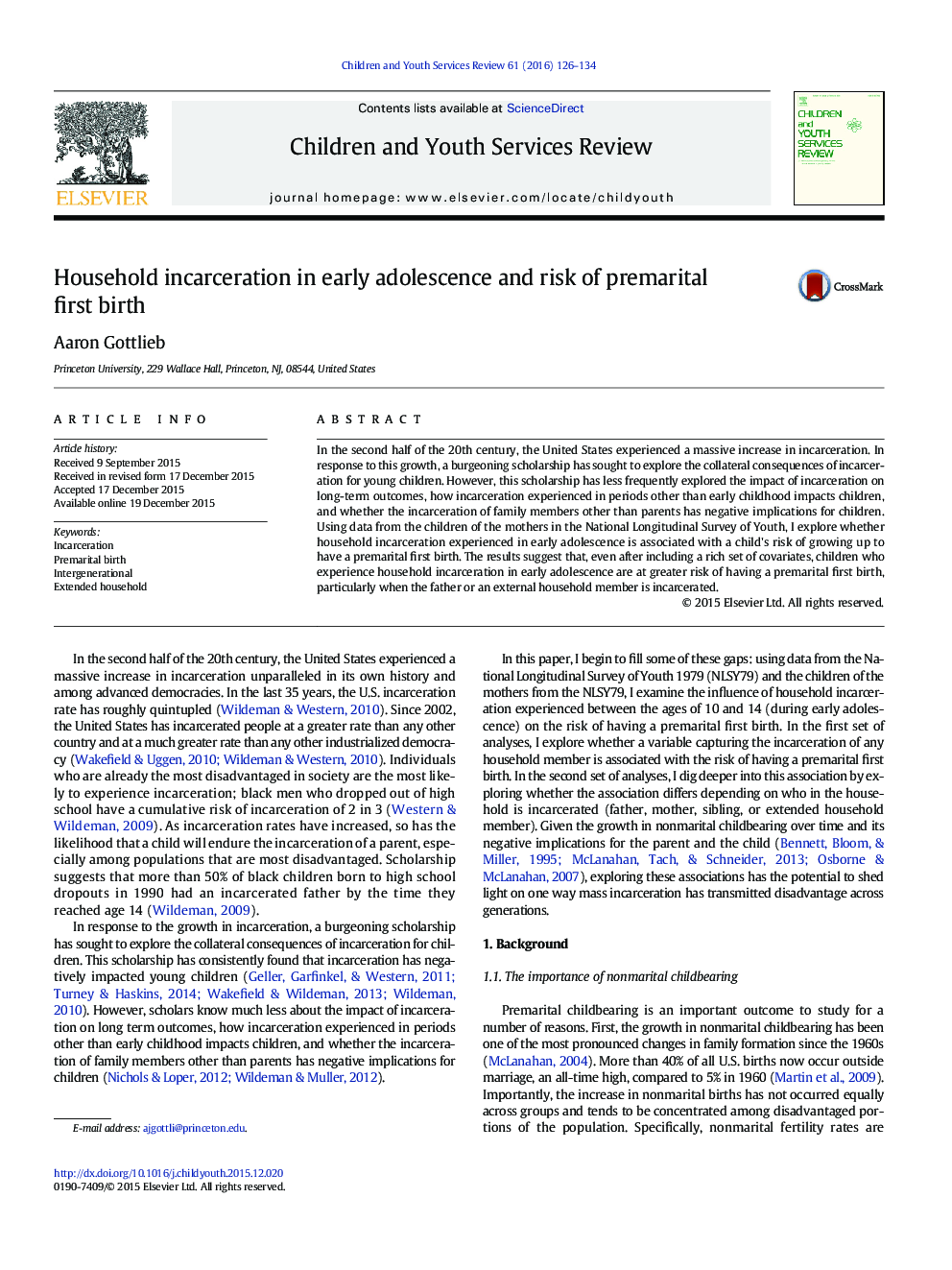| Article ID | Journal | Published Year | Pages | File Type |
|---|---|---|---|---|
| 345882 | Children and Youth Services Review | 2016 | 9 Pages |
•Explores the association between household member incarceration in early adolescence and a child's risk of premarital first birth.•Summary measure capturing whether respondent experienced the incarceration of any household member suggests that household incarceration is risk factor for premarital first birth.•More refined analyses show that associations differ depending on who in the household is incarcerated.•Without accounting for selection, paternal, sibling, and extended household member incarceration are associated with increased risk of premarital first birth.•Once controls for child, household, and maternal characteristics are introduced, the association holds for paternal and extended household members.
In the second half of the 20th century, the United States experienced a massive increase in incarceration. In response to this growth, a burgeoning scholarship has sought to explore the collateral consequences of incarceration for young children. However, this scholarship has less frequently explored the impact of incarceration on long-term outcomes, how incarceration experienced in periods other than early childhood impacts children, and whether the incarceration of family members other than parents has negative implications for children. Using data from the children of the mothers in the National Longitudinal Survey of Youth, I explore whether household incarceration experienced in early adolescence is associated with a child's risk of growing up to have a premarital first birth. The results suggest that, even after including a rich set of covariates, children who experience household incarceration in early adolescence are at greater risk of having a premarital first birth, particularly when the father or an external household member is incarcerated.
